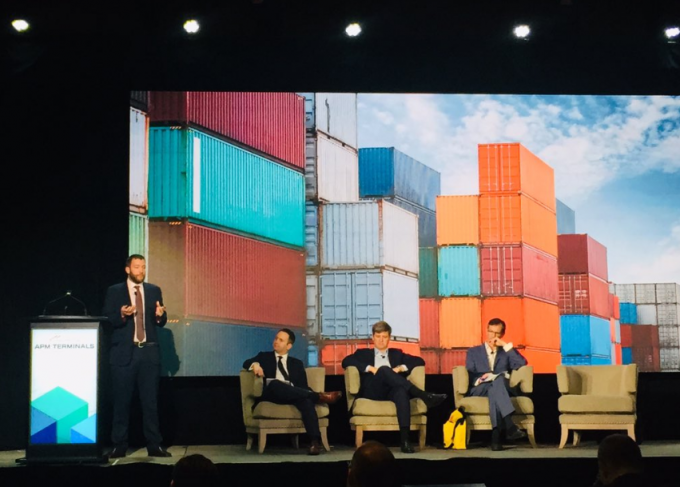Cosco eyes methanol-powered ships as it considers $3bn order for 15 vessels
Cosco Shipping Lines is thought to be planning another raft of newbuilding orders. But the ...

The implications for carriers and BCOs of the IMO low-sulphur regulations that come into force in less than 10 months have dominated this week’s JOC TPM Conference in Long Beach
Normally the annual event, this is the 19th, marks the start of annual contract rate negotiations on the transpacific, but this year the spectre of IMO 2020, and how the greener fuel is to be paid for, has overshadowed all other topics.
Shippers have admitted to not trusting the carriers, which know ...
'Disastrous' DSV-Schenker merger would 'disrupt European haulage market'
'Chaos after chaos' coming from de minimis changes and more tariffs
List of blanked transpac sailings grows as trade war heats up and demand cools
Shippers in Asia restart ocean shipment bookings – but not from China
India withdraws access for Bangladesh transhipments, in 'very harmful' decision
'Tariff hell' leaves industries in limbo – 'not a great environment to plan'
Asian exporters scramble for ships and boxes to beat 90-day tariff pause
Temporary tariff relief brings on early transpacific peak season
Pre-tariff rush of goods from US to China sees air rates soar, but not for long
De minimis-induced ecommerce demand slump could cripple freighter operators
Forwarders 'allowing the fox into the chicken run' by supporting 'hungry' carriers
Hapag 'took the bigger risk' when it signed up to Gemini, says Maersk
'Restoring America's maritime dominance' – stop laughing at the back of the class
Navigating tariffs: 'like trying to solve a Rubik's cube while colour-blind'
Marginal gains on east-west ocean container routes in a challenging week

Comment on this article